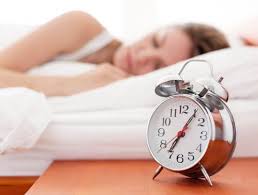Clocks go back tonight: Changes increase RISK of heart attack and weight gain
Circadian rhythm affects metabolism and mental health
Humans need a few days to realign themselves to the new clock cycle, according to a psychological doctor.
Swapping from British Summer Time to Greenwich Mean Time, and vice versa, impacts the body’s circadian rhythm - our ‘body clock’.
It’s been linked to a rise in heart attacks when we get one less hour of sleep, as we’re being active when we should be asleep.
Changing our circadian rhythm also impacts our ability to think clearly, solve problems, and even affects our happiness, the doctor added.
“Going to bed at the same time is a good thing, but when the clocks go back, we end up sleeping at different times,” said Dr Mark Winwood, Director of Psychological Services for AXA PPP Healthcare.
He told Express.co.uk: “We’re becoming increasingly aware that we’re sleep deprived; we’re the only animals that restrict our sleep.
“But, those box sets are so compelling - it’s so easy to just think ‘well, one more episode won’t hurt’”.
Heart attacks can be caused by a change to circadian rhythm
We get less daylight during the winter months, with some areas of the UK not even managing six hours of sunlight on some December days.
Less access to sunlight can impact our mental health, and mean we’re persistently feeling low, irritable and lethargic. The condition - Seasonal Affective Disorder, or SAD - is sometimes known as winter depression, according to the NHS.
“We aren’t supposed to be awake at nighttime, and we know there are really bad health implications for night shift workers, for example,” said Winwood.
“The death rate goes up, and some of them have weight troubles, too.”
We get an extra hour of sleep on Sunday morning
But, in the short term at least, we’ll be waking up to brighter mornings after the clocks go back.
The sun will rise at 6.48am in London on Sunday morning - the earliest since September 23.
“Waking up to more daylight makes us feel less tired,” Winwood added.
“Daylight helps us to get rid of melatonin, a hormone that makes us feel sleepy. That means we should feel more energetic in the mornings, and less tired when the alarm clock goes off on Monday morning.”
For those suffering from insomnia, or difficulty sleeping, Winwood and AXA PPP healthcare created a ‘mixtape’, designed to help you drift off.





Comments
Post a Comment